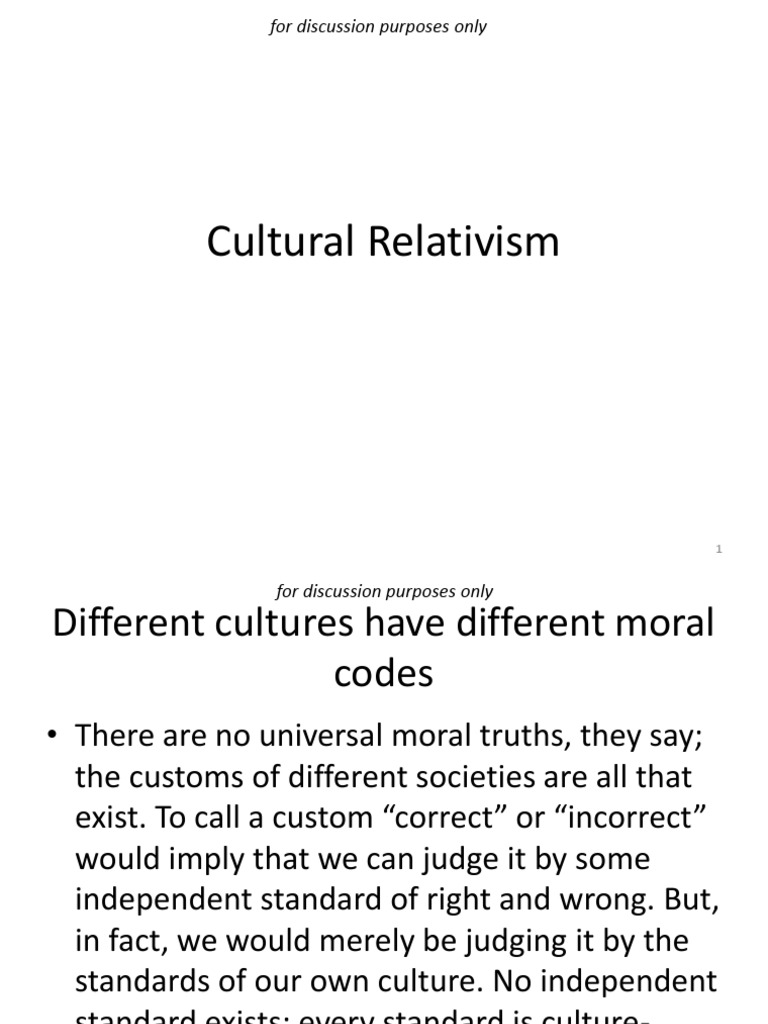Cultural relativism is a philosophical concept that posits the belief systems, values, and practices of individuals or groups must be understood based on their own cultural context. This viewpoint promotes the understanding that morality and ethics are not universal, but rather culturally bound. While cultural relativism has its advocates, it also faces considerable criticism. This piece explores the nuances of cultural relativism, examining its merits, pitfalls, and implications across various domains.
At its core, cultural relativism challenges ethnocentrism, the tendency to evaluate other cultures through the lens of one’s own. By advocating for an appreciation of cultural diversity, it encourages individuals to engage with different perspectives, fostering empathy and broader worldviews. In the context of globalization, where interactions among diverse cultures are rampant, this understanding is not merely desirable; it is essential.
One of the primary arguments in favor of cultural relativism is its contribution to social cohesion. When societies embrace the notion that no single culture holds an absolute moral high ground, they promote tolerance. For instance, in multicultural societies, acknowledging and validating diverse cultural practices fosters peaceful coexistence. This understanding is pivotal in mitigating conflicts arising from cultural misunderstandings or prejudices.
However, the acceptance of cultural relativism can lead to moral ambiguity. Critics argue that it may inadvertently endorse practices that violate universal human rights. For example, cultural practices like female genital mutilation or honor killings, often defended under the guise of cultural tradition, raise significant ethical concerns. The challenge lies in discerning when cultural practices should be respected and when they must be challenged. This dichotomy brings forth an essential question: where does one draw the line between cultural appreciation and ethical accountability?
Another facet of cultural relativism pertains to the realm of education. Incorporating cultural relativism into curricula can broaden students’ perspectives, allowing them to appreciate the intricacies of various worldviews. It empowers learners to understand history through multifaceted lenses, recognizing that narratives are often constructed by dominant cultures. This inclusivity enhances critical thinking skills as students learn to analyze conflicting viewpoints and arrive at informed conclusions.
Yet, there is a risk that cultural relativism, in its extreme form, may cultivate a form of moral paralysis. If taken to the letter, it might imply that all cultural practices are equally valid, regardless of their consequences. This perspective could hinder social progress and the pursuit of justice. The debate is often polarizing; there exists a tension between endorsing cultural respect and advocating for universally applicable ethical standards.
As cultural globalization accelerates, cultural relativism assumes a more prominent role in political discourse. Global leaders must navigate the complexities of cultural differences while striving to uphold human rights. International organizations, such as the United Nations, grapple with these tensions as they promote universal declarations that aspire to transcend cultural divides. The challenge lies in implementing policies that respect cultural identities while simultaneously safeguarding individual rights without imposing a singular ethical framework.
The concept of cultural relativism also intersects with the field of anthropology, where practitioners recognize the importance of cultural context in understanding human behavior. Anthropologists strive to immerse themselves within cultures, employing ethnographic methods to glean insights from within. This methodological approach fosters an appreciation for the intricacies of social norms and practices, revealing the depth of human experience.
Cultural relativism’s implications extend to the art world, where artists often draw inspiration from their cultural narratives. By celebrating diverse artistic expressions, the art community can cultivate a more inclusive environment. Yet, appropriation versus appreciation remains a contentious topic. How one navigates the fine line between borrowing from cultures and exploiting them shapes the ongoing discourse surrounding cultural representation.
In the digital age, the dissemination of cultural practices has become more accessible than ever. The proliferation of social media platforms allows cultural expressions to transcend geographic boundaries. This digital exchange can serve as a catalyst for cultural appreciation; however, it can also lead to the dilution or misrepresentation of cultural identities. Thus, a critical examination of cultural relavitism remains necessary to navigate this complex landscape where cultural boundaries are increasingly porous.
Another dimension to consider is the economic implications of cultural relativism. In industries such as tourism, the appreciation of different cultures can enhance experiences but might also commodify cultural elements. Organizations must navigate the ethical considerations involved in promoting cultural practices without trivializing their significance. Balancing profit with respect for cultural integrity is a critical undertaking for global businesses.
In conclusion, cultural relativism poses both enriching and challenging questions about the nature of morality, ethics, and cultural identity in an increasingly interconnected world. While it champions diversity and promotes understanding, it simultaneously faces challenges related to ethical standards and cultural appropriation. Thus, it is imperative for individuals, educators, and policymakers to engage critically with cultural relativism, adopting a nuanced perspective that advocates for both cultural appreciation and the upholding of human rights. This balanced approach will aid in navigating the intricate landscape of cultural diversity while fostering a more just and equitable global society.
